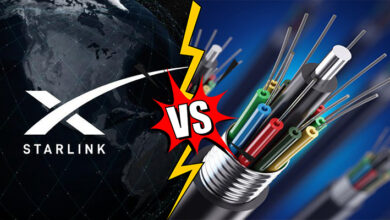Microsoft Corp. has six weeks to hash out details of a proposal to buy the U.S. operations of TikTok that satisfies the Trump administration and shareholders in Chinese parent company ByteDance Ltd. Of all the tricky questions that still need to be resolved for the deal to move forward, one stands out: How much is the video-sharing app’s business worth?
Analysts and bankers have pegged the value of TikTok’s U.S. business anywhere from $20 billion to $50 billion, a wide range that reflects the complexity involved in separating TikTok’s American and global businesses, in determining a reliable number of users, and how revenue breaks out just for the markets at stake in the deal. Microsoft’s discussions also include TikTok’s business in Canada, Australia and New Zealand.
TikTok’s parent is a closely held Chinese internet giant that operates a family of hit entertainment applications. ByteDance generated more than $3 billion of net profit on $17 billion in revenue last year, helping lead to a private-market valuation of more than $100 billion, making it the world’s most valuable startup, Bloomberg News reported in May.
But venture capital investors’ stakes are in ByteDance as a whole, not in TikTok, so there hasn’t been a clear valuation for a standalone TikTok. On top of that, because Microsoft is considering buying only the app’s operations in four countries, a further carving out from the broader TikTok business would be necessary. Daniel Ives, an analyst at Wedbush Securities, estimates that TikTok’s U.S. operations account for about 40% of ByteDance’s valuation, or about $40 billion.
If navigated well, Microsoft could turn the app into a $200 billion business, based on Ives’s estimates that TikTok has about 100 million active users in the U.S. and is bringing in around $2 billion in revenue already. The app could follow a similar path to Facebook Inc., which went public before it had fully revved up its advertising business. While TikTok has started displaying advertising on its app, the monetization of America’s fastest-growing social media platform is still in nascent stages.
Microsoft didn’t comment on a potential price in its blog post about its discussions to buy TikTok’s assets, and TikTok declined to comment on its valuation.
One person familiar with the White House’s discussions of TikTok said its global business would be worth about $50 billion, with its U.S. operations valued at less than that. The 5.6% increase in Microsoft’s shares Monday on news of the discussion — which added $87 billion to its market capitalization — would be enough on its own to finance the transaction, said the person, who asked not to be identified because the discussions were private.
Several analysts use Snap Inc., which owns rival app Snapchat, as a basis of comparison for TikTok. In its latest earnings report, Snap reported daily active users grew 17% to 238 million, and the company reported revenue of $1.72 billion in 2019. One banker said TikTok should be worth more than Snap, which has a market valuation of about $32 billion, because TikTok has more popular influencers and a more engaged community.
TikTok’s valuation could be based on its rate of user growth, but that measure also offers no definitive answers. Bankers, venture capital investors and analysts are grappling with a gap between what research firm Sensor Tower estimates are 165 million downloads of the app in the U.S., and how many active users remain on the platform. By comparison, Snap had 161 million daily active users right before its IPO in 2017. Facebook had 526 million in March 2012, prior to its IPO. That translated to $138 in market cap per user for Snap, compared to $198 per user for Facebook, according to Bloomberg Intelligence analyst Jitendra Waral. Using Facebook’s market cap per user before its IPO as a proxy, and assuming TikTok has 100 million users, that would imply a $20 billion valuation for TikTok.
“The biggest unknown here is the language around ‘users’ is vague,” Waral said. “But the difference between Snap and TikTok is user growth is faster than what Snap had in the U.S.” at the time of its IPO, he said. “So they might get away with a higher valuation.”
Based on the number of TikTok users and projections for $1 billion to $2 billion in 2020 sales, Waral said, the app could probably fetch around $20 billion. A $50 billion valuation would be almost double that of Snap’s at the time of its initial public offering, based on a multiple of about 25 times revenue, Waral says.
There are other hurdles Microsoft will have to overcome. The Redmond, Washington-based software maker is unpopular as a potential TikTok buyer with some China hawks in the Trump administration, including White House adviser Peter Navarro, who say the software maker is too close to Beijing. When Microsoft entered China in 1992, it helped engineer the government’s computer systems, installing special versions of Windows operating systems to comply with the country’s censorship controls.
“The Chinese Communist Party, whose software do they use to do all the things they do? It’s Microsoft. So this is not a white-hat company,” Navarro told CNN Monday.
The price for a piece of fast-growing TikTok could also depend on whether Microsoft scores a discount from picking up an app whose other alternative is being banned by the U.S. government. At least one other large company has shown interest in buying TikTok and other U.S. investors could take minority stakes, but Microsoft is the only one to confirm it’s talking to TikTok about a deal. If no other serious suitors emerge, Microsoft may have even more leverage to drive down the price as ByteDance races to save TikTok from being shut down.
“There’s no other dance partner at the prom for TikTok,” said Wedbush’s Ives. “There’s only one. It’s Microsoft.”
Source: Fortune




